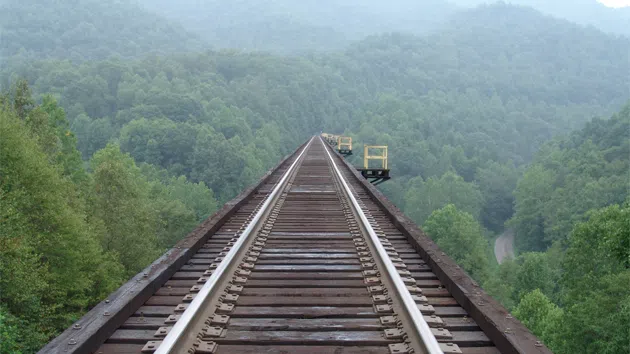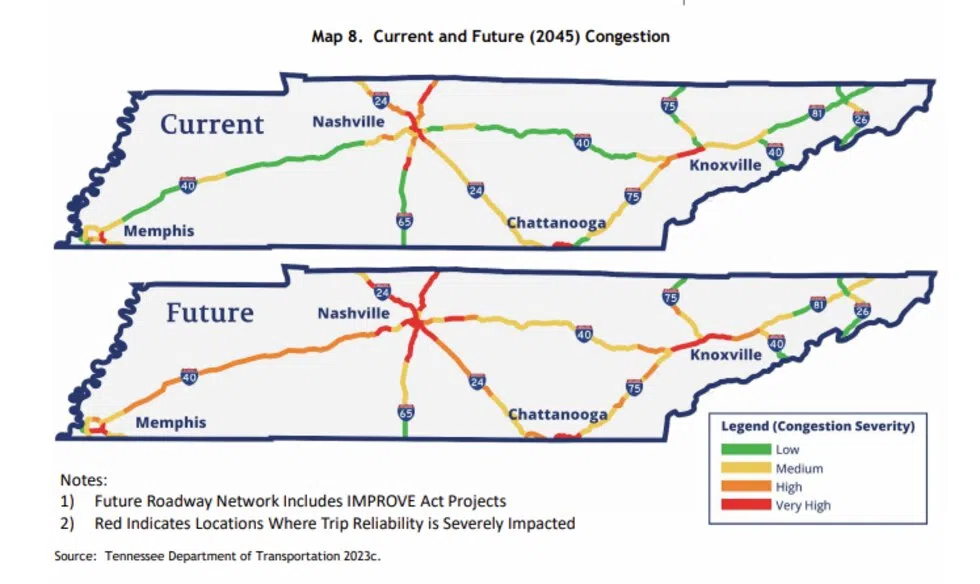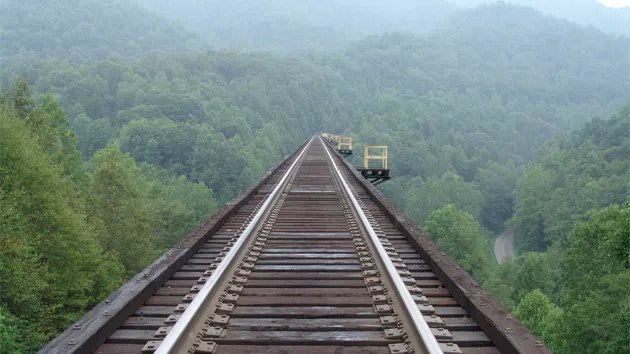
Passenger train routes connecting Tennessee’s largest cities to each other and bordering states is still decades away, if it happens at all, according to a newly completed study from the Tennessee Advisory Commission on Intergovernmental Relations (TACIR).
The study was ordered by the state government to iron-out possible costs and obstacles to establishing a passenger train system between Tennessee cities. According to TACIR, there are significant benefits and costs connected to the possible project.
The Tennessee Department of Transportation is warning that road travel in Tennessee is only going to get worse in the years to come. Trip times between major Tennessee cities could increase by an hour, according to TDOT. The reason for this, in part, TDOT says, is because Tennessee is the home of several freight crossroads, like Knoxville’s I-75 and I-40 crossing.
As such, TACIR’s study looked into how passenger rail could cut back on car traffic, while also offering other benefits, like economic boosts to Tennessee cities.
The plan was broken down into three tiers, based on priority:

- Tier 1 (one route)— Nashville to Chattanooga to Atlanta, GA
- Tier 2 (two routes)— Memphis to Nashville; and Chattanooga to Knoxville to Bristol (including a connector to Bristol, VA)
- Tier 3 (two routes)— Memphis to Carbondale, IL, to Chicago; and Nashville to Louisville, KY
These routes could, the study said, cut down on road traffic between Tennessee cities. As part of the study, TACIR found that in a national sample, 53% of Amtrak riders said they would drive if a train was not available. Another 8% said if a train was not an option, they wouldn’t take their trip.
According to the study, this means that passenger rails can both cut down on car traffic and boost tourism, leisure and business visits to connected cities.
Observant East Tennesseans will notice, however, that Knoxville is only connected to the rest of the state through Chattanooga. That’s where the obstacles of a Tennessee passenger rail system come in.
Building the project would mean investing millions into infrastructure across the state, the study said. While some passenger trains would be able to use established freight routes, the project would need to avoid affecting Tennessee’s existing rail supply chain, causing problems for state businesses.
For example, the study pointed out a spot in Franklin County where rail lines are limited to a single-track tunnel through the Cumberland Mountains. Geographical hurdles mean a Knoxville-to-Nashville route is unlikely; it’s not even mentioned in the study.
Funding is another issue. Right now, the federal government is only on the hook for Amtrak routes longer than 750 miles. That means that, unless the state can bargain for private partner funding, the up-front costs will be Tennessee’s and Tennessee’s alone.
TACIR concluded that TDOT should establish a passenger rail office to look into the project further, an office other states like Virginia already have.
TACIR does offer another option, however: a public inter-city bus service. That option would cost less time and money.
Story courtesy of WVLT













